Approach of the simoom—desert of Gizeh.
The paintings are by Scottish artist David Roberts (1796–1864) from two collections of prints of the Middle East, The Holy Land, Syria, Idumea, Arabia, Egypt and Nubia (1842–1845) and Egypt and Nubia (1846–1849). These are a small sample from many more at the Library of Congress Prints & Photographs archive, and as representations of places that most of the original viewers would never otherwise see they hold up very well beside photos of the same locations. (See this earlier post for photos of Thebes and Kom Ombo a few decades later.) I always enjoy old book illustrations of the Baalbec temple entrance for the way artists seldom resist doing the Piranesi trick of exaggerating its scale, the better to make its perilous keystone seem all the more precariously poised. The doorway is taller today (having been excavated) but less of a threat.
Baalbec, May 7th, 1839.
Statues of Memnon at Thebes, during the inundation.
Thebes, Decr 4th, 1838.
Kom Ombo, Nov 16th, 1838.
Petra, March 7th, 1839.
Previously on { feuilleton }
• Pascal Sébah

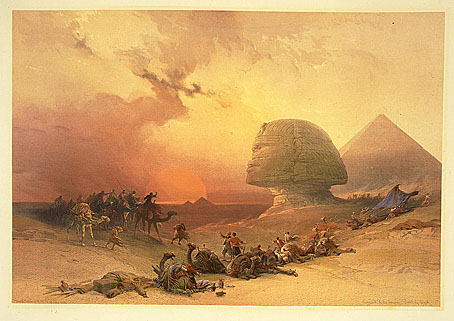
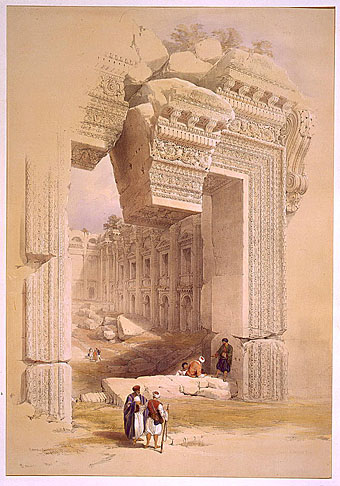
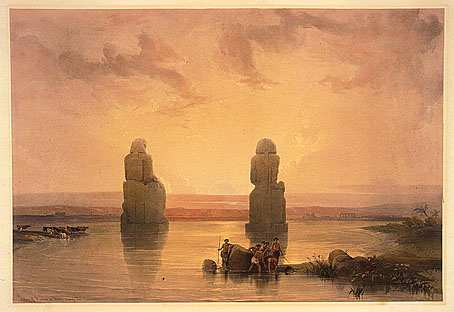
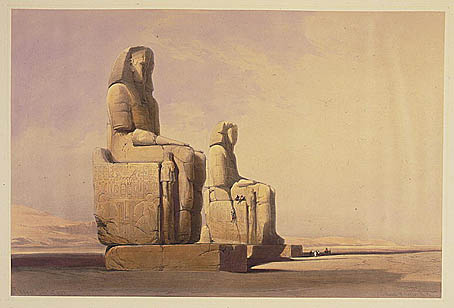
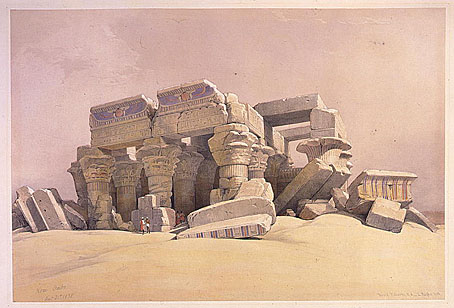
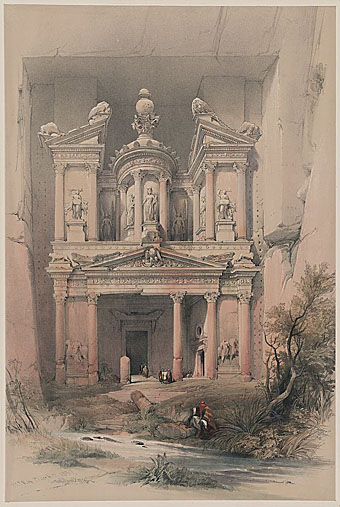
I love that these are relatively accurate and beautiful, too.
Thanks for the post John, these are wonderful.
Nice to see those, been a long time since I last finished a drawing with watercolour. I’m gonna’ do it again this weekend (if I’m still with a good hand for it… but I think I am).